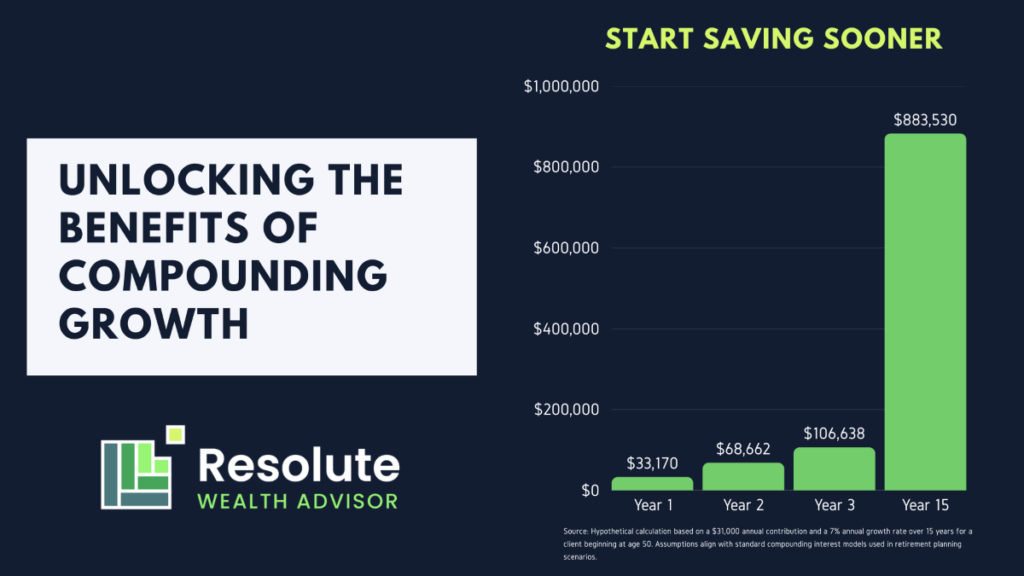Are you dreaming of a retirement filled with leisurely days to do as you please, with no busy schedules or commitments? If so, it may be time to envision retirement in a new way. The Center for Retirement Research in Boston found that the average length of retirement is twenty years. Two decades is a long time to sit back and relax, and this outdated mindset about this phase of life is leading some retirees to find retirement so boring that one-third actually choose to return to work.
What most people really want is a fulfilling retirement. It isn’t simply about rest and relaxation. Rather, it’s the extra time to do meaningful things that you’ve always wanted to do but lacked the time to focus on during your working years. Below we’ll discuss twelve ways to combat dissatisfaction with retirement by filling it with purpose, meaning, and joy. And, there is no reason to wait for retirement – many of these concepts are things you can start exploring right now.
Learn a Language
Who says you can’t teach an old dog new tricks? Learning a new language can be accomplished at any age and can help with your cognition and memory. Those two areas are especially important to attend to in your later years. Learning a new language is a great skill to have, too, especially if you plan to travel in retirement or tackle a hobby like reading the classics in their original language.
Join a Sports League
Joining a sports league is a great way to stay active and healthy, and it contributes to an active social life, too. Sports will give you a cognitive boost and also lift your mood. Try out different sports and find the one that clicks for you. If socializing is your priority, focus on team sports. You don’t need to go out and join the 65+ rugby team; find the sport that fits your taste, whether it be rigorous or more relaxed.
Indulge Your Hobby
Hobbies come in all shapes and sizes, and there are many to choose from. Did you know that while you are participating in your hobby, it can lower your stress level and blood pressure? If you don’t have any hobbies currently, consider starting one up before you retire to give yourself time to find the one you enjoy the most. Begin exploring activities you’ve always been curious about. Try taking classes at your local community center. If you are having trouble finding a hobby, think about what you like to do in your spare time or even what your interests were as a child. You may find that early spark in childhood grants you purpose later in life.
SEE ALSO: Creating Work-Life Balance for the Executive Lifestyle
Create Art
Artistic endeavors are myriad, and many could overlap with your existing hobbies. In addition to the stress reduction benefits, creating art can improve memory and help you cope with emotional stress. Much like hobbies, you can find art classes of all kinds in your community or even through training programs online. A great thing about art is that it doesn’t have to be a solo activity. Many forms of art are social activities like playing in a band, dancing, or acting.
Start Your Own Business
There is no time like the present, and that is certainly true when you’re retired. If you’re feeling bored or unfulfilled in your daily activities, why not start that business you’ve always dreamed of? Retirement is a great time to indulge your entrepreneurial spirit, so go ahead and open that used bookstore or boutique you always wanted to run. You can spend your last several years before retirement writing up a business plan to prepare. Research the market, find a location, and begin funding the project all before you’re officially retired. It can be a great use of your time, give you something to look forward to, and even create another source of income. If you’re unsure how to start, there are many resources available through the Small Business Administration (SBA) that will help you on your way.
Work for Fun
It may sound crazy to you if you can’t wait to make it to retirement and leave the working world behind, but many retirees work for fun, and they report increased feelings of purpose related to it. Your options are nearly endless. You could explore something like consulting in your area of expertise, or you can go a different route and, say, work in retail because you love the customer connection and buzz of activity.
If you plan on traveling, investigate your options as a seasonal worker. Seasonal workers teach skiing, lead tours, and work at restaurants on the beach. You could also use retirement as a time to pursue that “dream job” that wasn’t enough to support your lifestyle before retirement. Regardless of what you choose, you’re likely to enjoy a multitude of benefits.
Become a Volunteer
Volunteering is one of the most purposeful ways you can add meaning and fulfillment to your retirement. Think about the last time you engaged in a volunteer effort, and the boost of energy you felt by contributing to a meaningful cause. There are likely many volunteer opportunities in your own community, but if you need a place to start you can explore volunteermatch.org to find a good match for your interests, location, and skill set.
Go Back to School
Retirement can also be a great time to engage your mind and develop new skills in a classroom setting. You could go full steam ahead and get a degree, or simply take a few classes at a local university or online. Whatever form of learning you decide on, you will reap the cognitive benefits. Learning will strengthen neural connections and decrease the chances of dementia. A bonus to being a senior going back to school is that many educational institutions offer discounts, or even let you audit classes for free.
Explore the Outdoors
There have been many studies done about the health benefits of spending time in nature, making it both enjoyable and beneficial to spend time outdoors every day. Exposure to sunlight also increases the release of serotonin, a hormone that can make you feel calmer and more focused. Sunlight also helps your body create vitamin D, which is good for your bones. All these health benefits are a bonus to the sense of meaning one can feel when exploring in nature. You can enjoy your time outdoors hiking, biking, fishing, birdwatching, or simply strolling through your neighborhood.
SEE ALSO: Ways to Build Wealth in Your Fifties
Embrace a Traveler’s Lifestyle
If you have plans to travel, why not travel in style? Many retirees find great joy traveling by motorcycle, boat, or RV. Because these modes of travel are a bit specialized, they’ll require some training and know-how. One of the great things about this is it can be a combination of things — a bit of learning, a bit of the outdoors, and a bit of ‘hobbying.’ Life is a journey!
The Wild Card — Don’t Retire!
Maybe you love your job and don’t want to leave it, or so much of your identity is wrapped up in your professional life that you just wouldn’t feel like “you” without your work. If continuing to work feels right to you, do it! However, consider that there may be opportunities to scale back and adopt a greater work-life balance as you age. There is actually a continuum between work and retirement that many people fail to appreciate, so work to find the right mix for you. There are many ways to continue doing what you love while still exploring more freedom associated with a retired lifestyle.
Creating Your Fulfilling Retirement
If your view of retirement has consisted mostly of imagining the absence of work, it may be time to adopt a mindset that will allow you to create a more meaningful and fulfilling retirement – and one that helps you fight the unexpected boredom many retirees experience, too. While the above list can give you a place to begin, your retirement can and should be uniquely your own. Think outside the box, begin exploring your options now, and set yourself up to hit the ground running once you reach retirement.
At Resolute, we view each client as an individual – not as a portfolio. If you’re looking for a financial advisor who takes the time to truly understand your unique goals and lifestyle, contact us today for a complimentary consultation.






